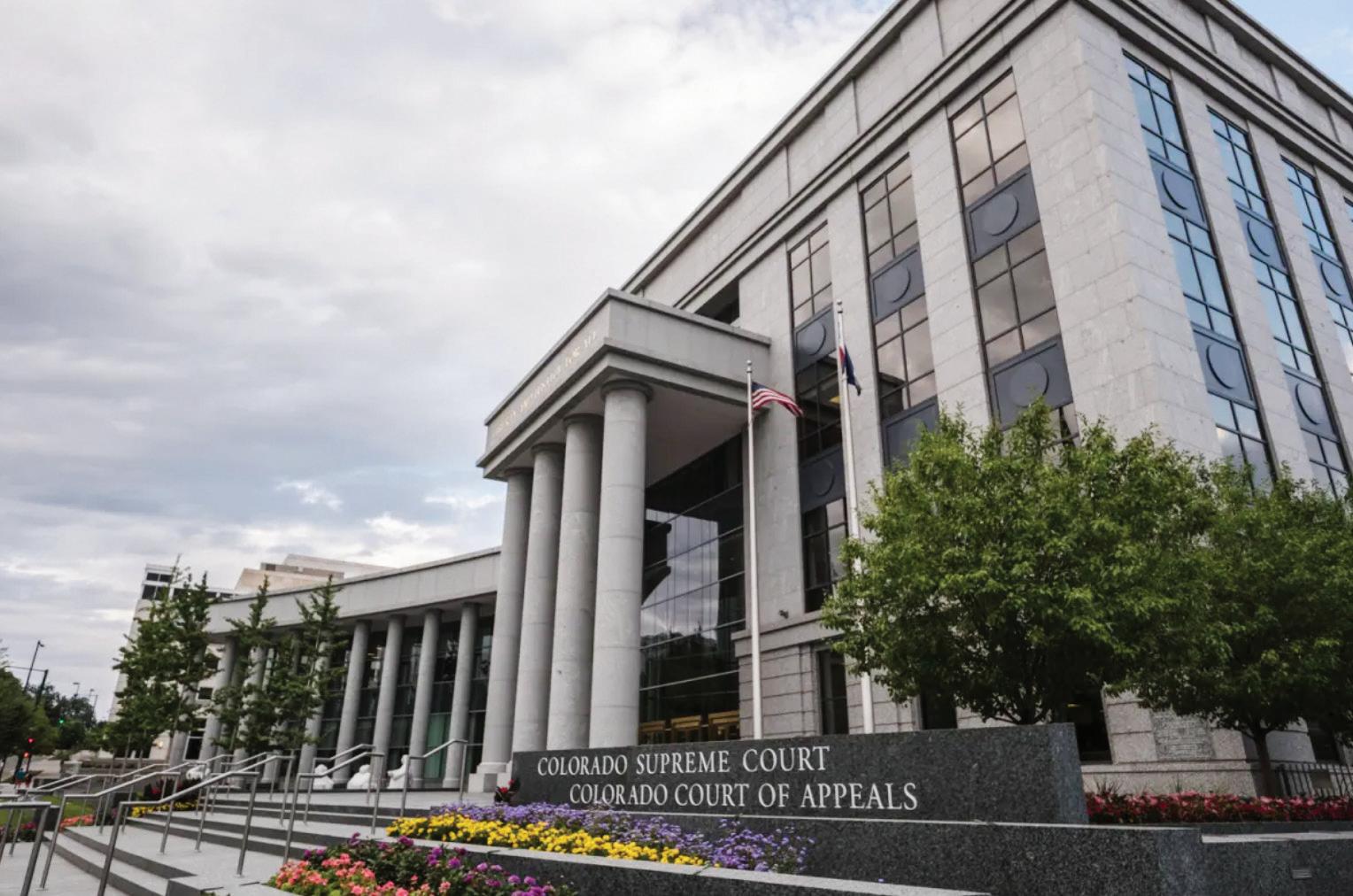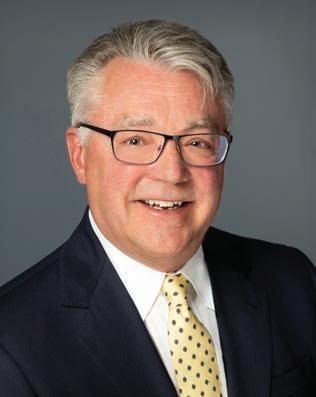
5 minute read
Retiring workers find new life through CU Denver program
BY JESSE PAUL AND ELLIOTT WENZLER THE COLORADO SUN
When a group of Colorado lawmakers in 2020 sought to end the state’s statute of limitations for lawsuits in child sex assault cases, some victims and victims’ advocates wanted them to try to go even further.
eir request was that Colorado give victims of abuse for whom the statute of limitations had expired a window to sue not only their abusers, but also organizations that shielded the perpetrators or negligently allowed the abuse to continue.
e nonpartisan O ce of Legislative Legal Services, which o ers state lawmakers legal advice, said such a window would violate the state’s constitution, which prohibits the General Assembly from reviving a claim for which the statute of limitations has run out. It turns out that opinion held merit.
BY JASON GONZALES CHALKBEAT COLORADO
Retirement can be about more than pickleball and world travel. For some retirees, winding down a career could mean transitioning to other work or dedicating part of their time to passion projects, said Todd Matuszewicz, 60, who plans to retire soon. Figuring out which is next, however, is the hard part.
“After working for 35 years, at the end of it, there’s no exit strategy,” said Matuszewicz, a neon sign maker and former educator. “ at’s not taught as part of education. ey say here’s chemistry, here’s your history, but there was no one saying: We’re going to help you on the back side.” But Matuszewicz found help through the University of ColoradoDenver’s Change Makers program. e pilot program, which started this year, joins a growing list of programs nationwide that are helping older adults prepare for how they want to spend the next phase of their lives. e program is a priority for school leaders who want to serve older adults because they want the school to be “a university for life,” said Anne Button, the program’s founding director.


Here and nationally, schools also have looked for new ways to bring in students. Some schools have faced declining enrollment since the pandemic, and lower birth rates will mean fewer college-age students to e Colorado Supreme Court last week struck down the part of Senate Bill 88, a law passed by the legislature in 2021, giving victims of child sex abuse dating back to the 1960s a three-year window starting on Jan. 1, 2022, to le lawsuits against their abusers and the institutions or organizations that failed to stop the abuse. e high court’s decision was unanimous. ere were many concerns about

SEE WARNED, P2 the constitutionality of Senate Bill 88 as it was debated in the legislature, but the measure’s sponsors took the rare step of proceeding anyway, saying the severity of the crime demanded it. Dozens of pending or soon-to-be- led cases were unraveled by the Supreme Court’s ruling.


“We knew that there would be a challenge to this law because the opponents of the measure made it clear they intended to sue,” said Sen. Jessie Danielson, a Wheat Ridge Democrat and prime sponsor of the bill. “We still had the obligation to do the right thing and try to stand up for the people who were abused as children.” e opponents included public schools and the Catholic Church, who warned that Senate Bill 88 posed a major nancial burden because of the legal costs stemming from how many lawsuits they would have to defend against. ey also argued the measure was plainly unconstitutional.
Rep. Dafna Michaelson Jenet, a Commerce City Democrat and another lead sponsor of Senate Bill 88, said there were always concerns a court would toss out the policy. “It’s disappointing that it came out this way. However, clearly the way the vote went — 7-0 — they absolutely feel it is unconstitutional.”




Several other states, including New York, New Jersey, North Carolina and California, have passed laws giving victims of child sex assault from decades past a window to sue. e measures were inspired by the worldwide Catholic Church abuse scandal and the fact that survivors often wait decades before they reveal their victimization, including a man pro led by e Colorado Sun in 2020 who waited more than three decades to tell his family that he had been abused as a child by a priest who was a constant gure in their lives.

Senate Bill 88 tried to get around the constitutional prohibition on reviving a claim for which the statute of limitations has run out by creating an entirely new civil cause of action. e Colorado Supreme Court said that despite the careful legal maneuvering, the law was still deemed unconstitutional.
Ground-level ozone is invisible and the Front Range’s biggest air quality issue. Created from pollutants like car exhaust, ozone is a leading cause of respiratory problems.
Improving our air quality takes all of us, and there are many ways to help. We encourage you to #JustSkipTwo car trips a week, mow your lawn after 5 p.m., don’t idle your car, telework a few days each week, and take the bus, bike, or walk.
Sign up for air quality alerts and learn more about the simple steps you can do to help.
SimpleStepsBetterAir.org e push to create a so-called look-back window in Colorado was so erce that it led to the demise in 2020 of a measure that would have ended Colorado’s statute of limitations for lawsuits solely in future child sexual assault cases or in cases where the statute of limitations hadn’t already run out. e sponsor of that legislation, Sen. Julie Gonzales, D-Denver, killed the measure in a dramatic committee hearing because she said it didn’t do enough to help victims of child sex abuse in decades past.
“I’m not willing to pass a bill that lets perpetrators o the hook,” Gonzales said at the time. “I will not settle for watered-down justice. I believe we have to do better. All victims of sexual assault deserve to see their abusers held accountable.”
Proponents split the two proposals into two measures in 2021, and Senate Bill 73, eliminating the statute of limitations, passed and was signed into law. ( e statute of limitations gave child sex abuse survivors six years after they turned 18 to le a legal action.)
“For the same reason that the legislature cannot revive timebarred claims, it cannot create a new cause of action that covers the same conduct and apply it retroactively,” the court’s ruling said. “We certainly understand the General Assembly’s desire to right the wrongs of past decades by permitting such victims to hold abusers and their enablers accountable. But the General Assembly may accomplish its ends only through constitutional means.” e Supreme Court’s decision came in a case led by a woman who sued Aurora Public Schools. She said she was sexually abused by a coach at Rangeview High School in the early 2000s, alleging that the coach made her perform oral sex on him over 100 times during her four years at the school, starting when she was 14. She said it wasn’t until 2007 that she began to fully understand what had happened to her, but when she reported the abuse to police, authorities told her the statute of limitations had run out. e case was tossed out by a lower court on grounds that Senate BIll 88 was unconstitutional, which prompted the woman to le an appeal with the state’s highest court.












